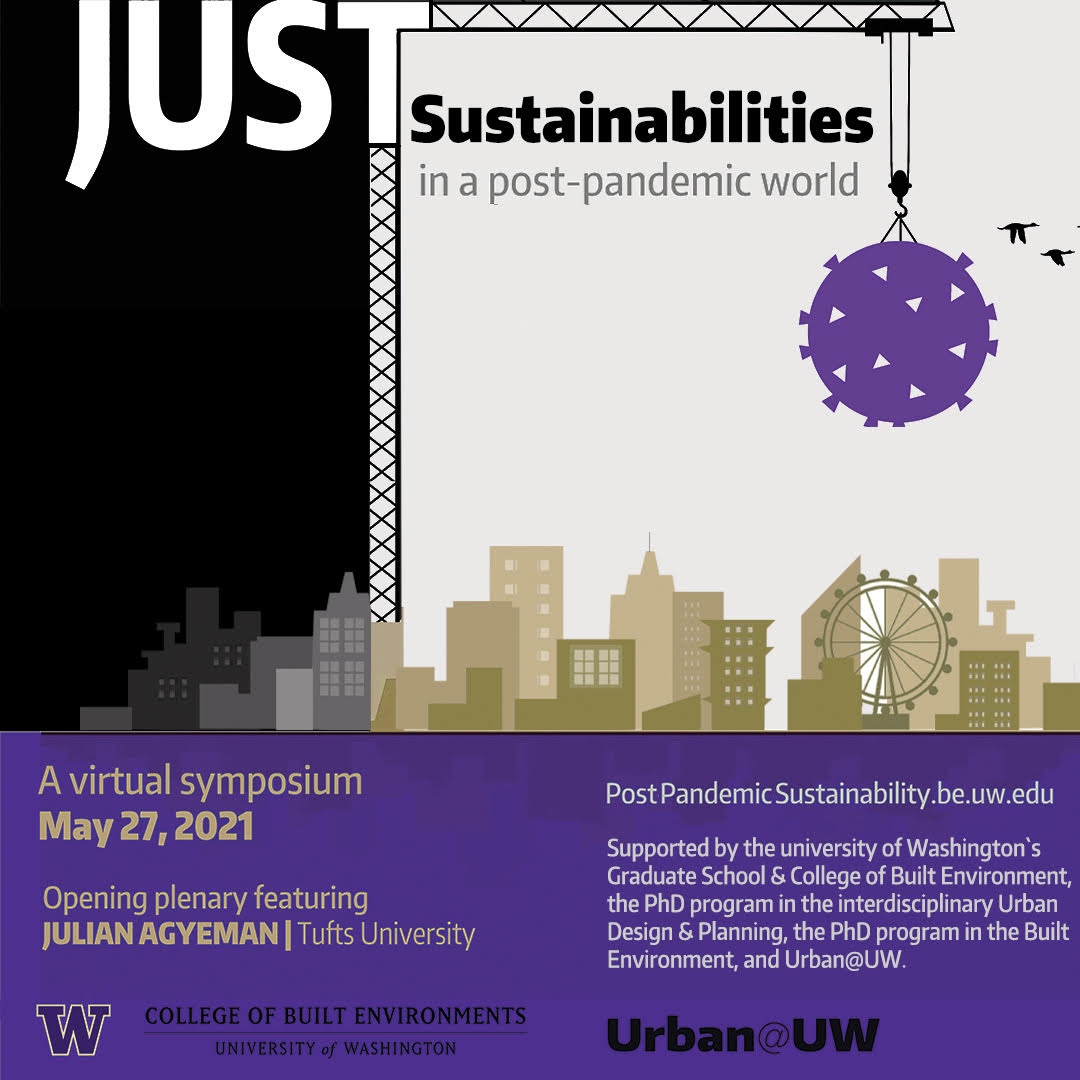About
The COVID19 pandemic has tested our cities’ adaptability and resilience and dug deeper holes in cities’ social, environmental and physical fabric. As we come out of the pandemic, we need to re-think how the city fabric functions. Planning for the post-pandemic city requires a careful understanding of the implications of the COVID19 pandemic on pre existing inequities and sustainability challenges. To reimagine our cities in a post-pandemic world is an invitation to explore the complex and embodied relations between humans and the urban environment, whether mediated by governments or communities, and their effects on public policy, planning processes and outcomes, particularly concerning notions of justice and equity.
This one-day online symposium brings together over 30 academics, researchers, practitioners, and activists with research that visualizes sustainable, smart, and resilient post-pandemic cities while recognizing the diversity and equal rights to the city. Together, we aim to rethink practical and philosophical methods, using just sustainabilities as the anchor, to face spatial and social inequities and inequalities.
Organizers
Lamis Ashour (Lamis21@uw.edu)
Jenn Engelke (jengelke@uw.edu)
Babita Joy (bjoy@uw.edu)
Yuqi Li (yqli@uw.edu)
Bo Peng (Bpeng117@uw.edu)
Support
This event is sponsored by the College of Built Environments, the PhD Program in the Built Environment, and the Interdisciplinary PhD Program in Urban Design and Planning at the University of Washington. Additional support is provided by Urban@UW.
Special thanks to Julia Feyk, Laura Barrera, Nancy Dragun, Erika Harris, Joshua Polansky, Brian Vogt, Jamilah Williams, Qing Shen, Alex Anderson, Jennifer Davidson, and Ken Yocom for their work to make this symposium possible.


